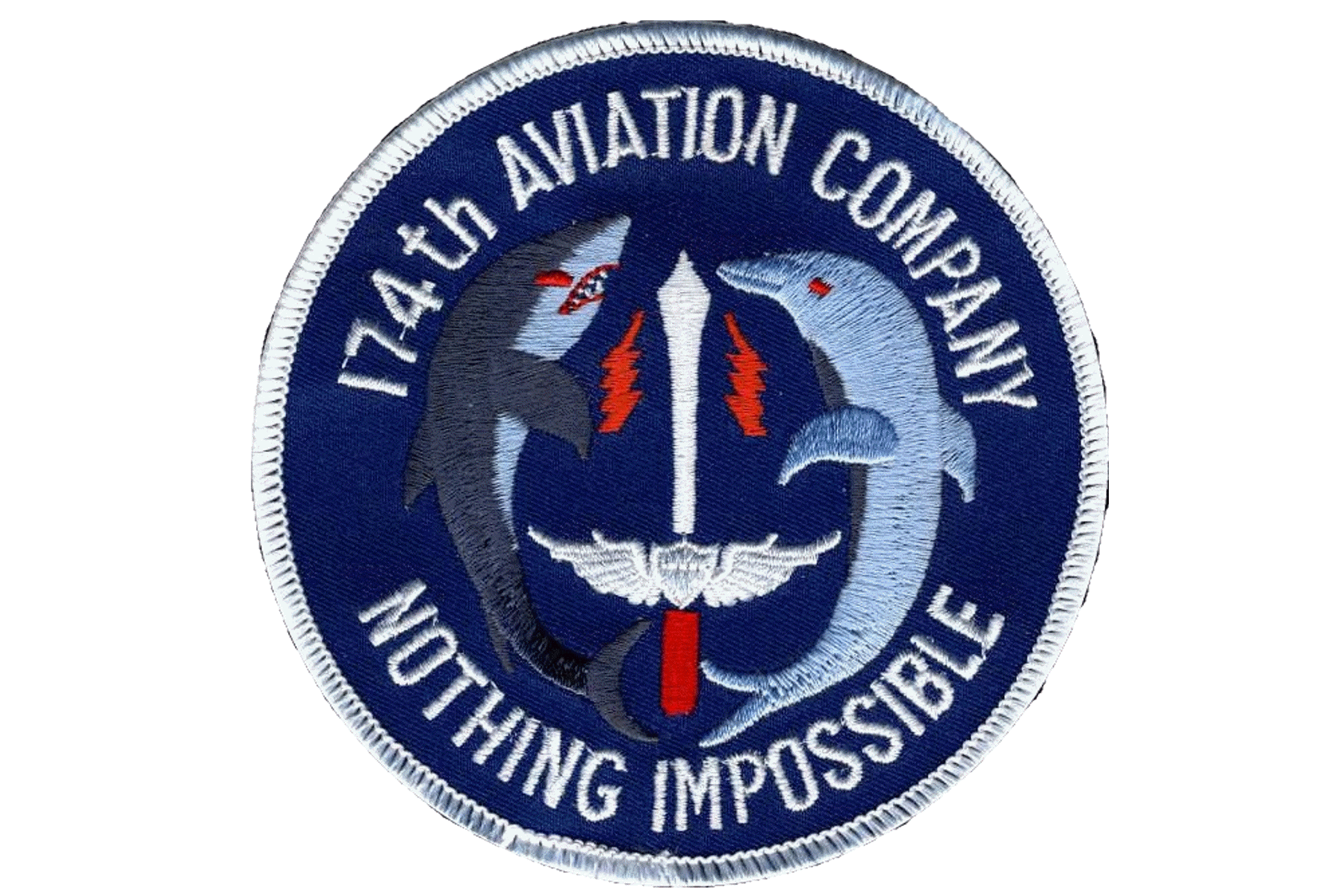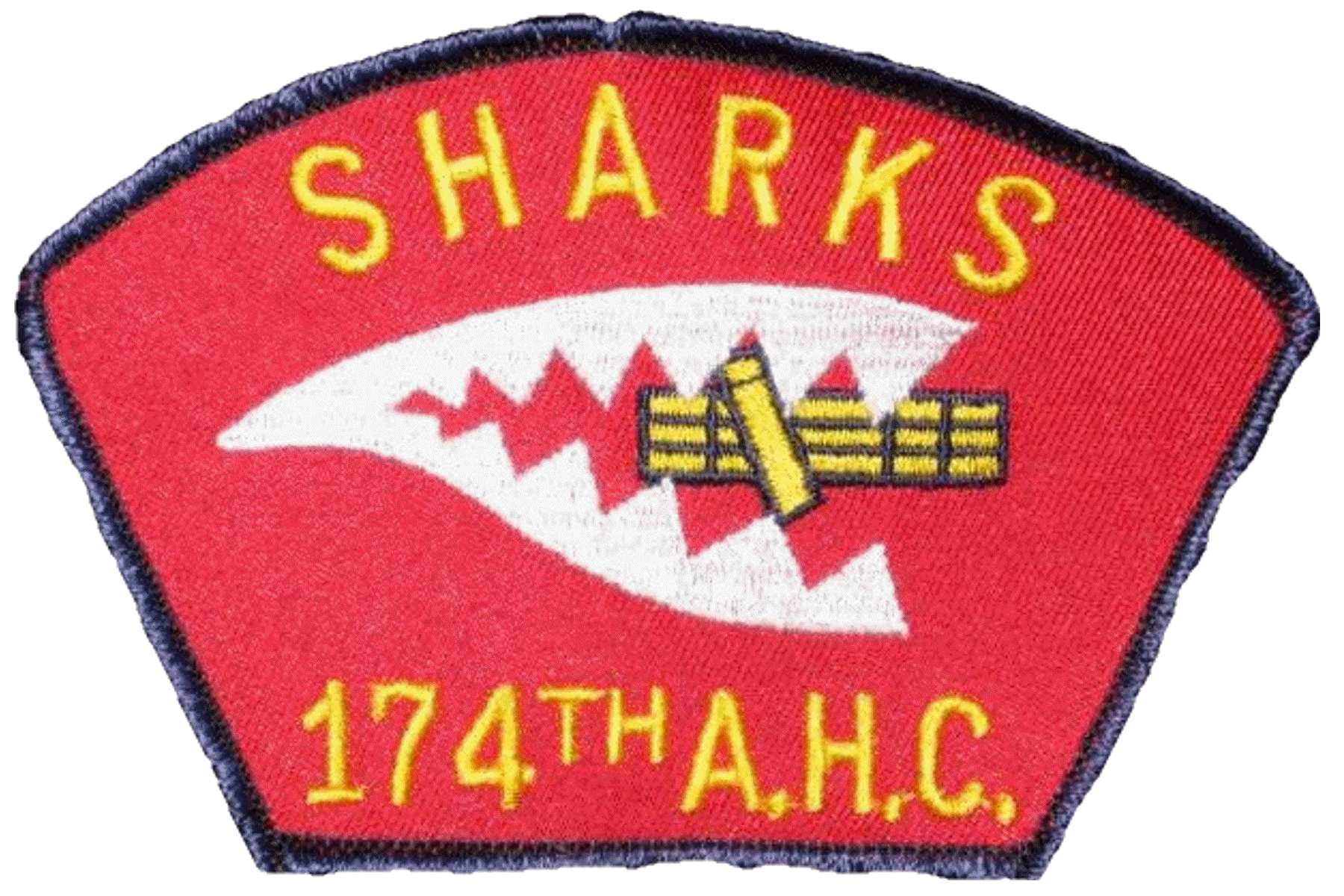The following is the text from a newspaper article published in
the STARS AND STRIPES on 18 January 1968. The article was accompanied by
a photograph (which unfortunately we do not have), with the caption:
"Spec. 5 Bud Maher (left), of Cut Bank, Mont., crew chief with the
174th Aviation Co. at Duc Pho, and Spec. 4 Gary Bugher, of Kokomo, Ind.,
a door gunner, pull maintenance on one of the miniguns installed on a gunship."
Crew Chiefs Are Eyes and Ears of Gunships
18 January 1968
Story and Photo
By SPEC. 5 STEVE WILSON
LONG BINH, Vietnam (IO) - He's part mechanic, part pilot, an ordnance expert, and a darn good machinegunner. That's how one helicopter pilot described the Army crewchiefs assigned to gunships in Vietnam.
Holding the responsibility for an aircraft and weapon system worth thousands of dollars, the crew chief's job is not a simple one. The helicopter is his aircraft and he's the man who says whether it flies or not.
Crew chiefs are trained by the Army for their future jobs, but according to Spec. 5 Bud Maher (from Cut Bank, Mont.), a crew chief with the "Sharks" of the 14th Combat Aviation Bn.'s 174th Aviation Co. at Duc Pho, "We never stop learning."
The crew chief must keep astride of new developments in the complex helicopter engine's and the ever changing weapons systems installed on the Army's gunships.
Maher said he spent about three months in on the job training after coming to Vietnam, learning more about the gunships for which he is responsible.
Capt. Tom Wood (from Brunswick, Ga.), platoon leader of the "Sharks," says when his day ends, the crew chief's is just beginning. Before he leaves the aircraft, the helicopter must be ready to be airborne at a moment's notice.
To keep the aircraft in top shape, the crew chief will pull a daily inspection in which he checks out every vital part of the aircraft and its armament.
For every 25 hours in the air, he pulls a three-hour inspection looking over the aircraft for the slightest defects which could prove fatal once in the air.
Often in the short time between sorties, he and his door gunner will have to pull maintenance on the ship or weapons systems.
At any time of the day or night he and his crew are liable to be called on a short notice scramble to assist ground troops.
One pilot said the crew chief treat their assigned choppers as though they were their family cars.
Sgt. James Yocum (from Chicago, Ill.) platoon sergeant of the "Sharks," said, "They're proud of their unit and proud of their ships. It's nothing out of the ordinary to see a crew chief working in the dark late at night on his ship to make sure it will be flying in the morning."
|
![]() Return to top of: 1968 History Page.
Return to top of: 1968 History Page.![]() Return to top of: Home Page.
Return to top of: Home Page.
